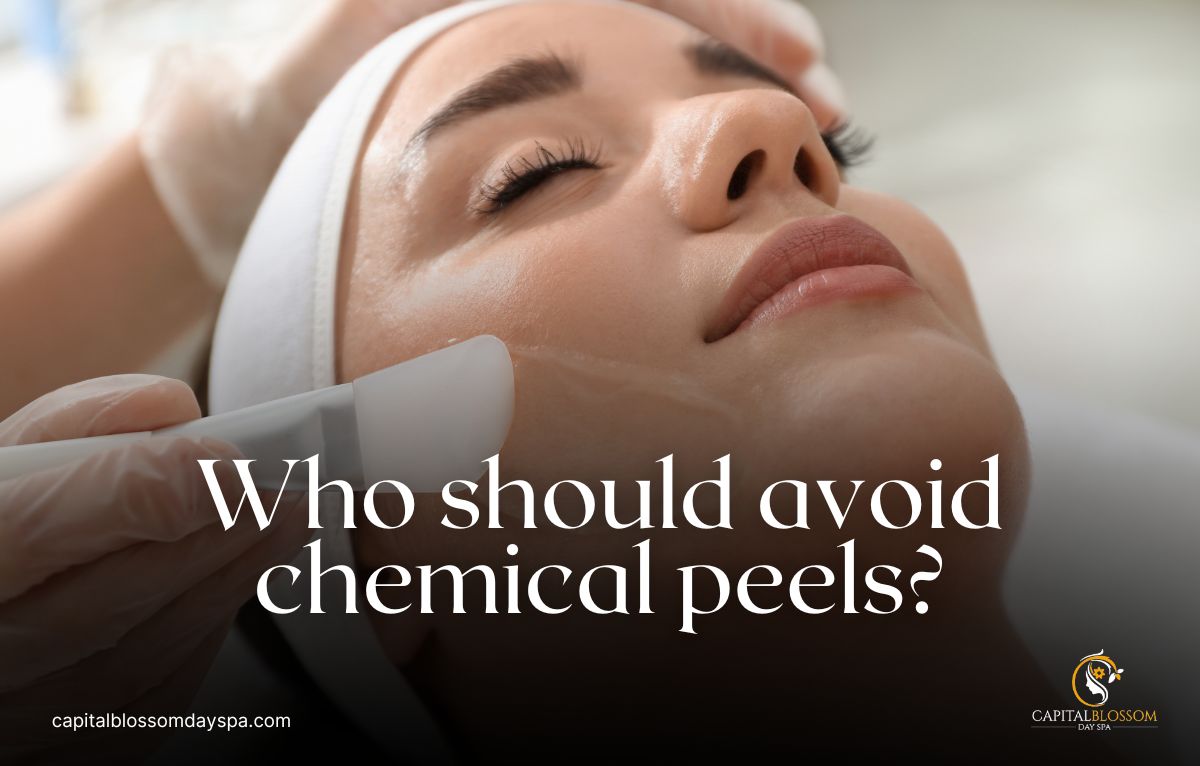
Who Should Avoid Chemical Peels?
Chemical peels have grown in popularity for their ability to rejuvenate the skin, treat hyperpigmentation, and smooth out fine lines.
But despite their benefits, these treatments aren’t suitable for everyone.
If you’re considering a chemical peel, it’s crucial to understand if you’re among those who should avoid them.
So, let’s look into who should avoid chemical peels and why it’s essential to be cautious before committing to one.
What are Chemical Peels?
Chemical peels use a solution to exfoliate the skin, which removes its top layer. This can lead to smoother, clearer, and brighter skin once the treated area heals.
Different types of peels range from light to deep, depending on the strength of the acids used. While many people find chemical peels beneficial for enhancing their complexion, they aren’t suitable for everyone.
In fact, there are several groups of people who should avoid chemical peels to prevent complications.
Sensitive Skin and Allergies
If you have sensitive skin, chemical peels might be too harsh.
Those with conditions like rosacea, eczema, or a tendency toward redness can experience significant irritation after a peel.
The strong chemicals can aggravate these conditions, leading to prolonged redness, discomfort, and even worsening of symptoms.
If you’re wondering if you’re someone who should avoid chemical peels, consider how your skin reacts to new products.
Allergic reactions to the acids used in peels can also trigger swelling, rashes, or a burning sensation.
Active Acne Breakouts
It might seem counterintuitive, but if you have active, inflamed acne, chemical peels can do more harm than good.
Those with severe acne or cystic breakouts should avoid chemical peels since they can further irritate the skin, increase inflammation, and even spread bacteria, potentially worsening the condition.
If you’re looking for solutions for acne, it’s better to consult with a dermatologist for safer alternatives before thinking about a peel.
Darker Skin Tones
While chemical peels can benefit people of all skin types, those with darker skin tones need to be especially cautious.
The risk of hyperpigmentation is higher for those with naturally darker skin.
This means that instead of achieving smooth, even skin, some may develop darker patches as a result of a peel.
If you’re uncertain if you fall into the category of those who should avoid chemical peels, consult a skincare professional who understands your skin type before making any decisions.
Pregnant or Nursing Women
Pregnancy is a time to be extra careful about what you expose your body to.
Many chemical peels involve ingredients that are not recommended during pregnancy, such as salicylic acid and retinoic acid.
These can be absorbed through the skin and potentially affect the baby. If you’re pregnant or breastfeeding, it’s advised to steer clear of chemical peels until you’re sure it’s safe.
There are gentler, pregnancy-safe skincare treatments that can help you maintain a healthy glow without the risk.
Those Taking Certain Medications
Medications like Accutane or other retinoid-based drugs make the skin extra sensitive and prone to irritation.
If you’re on these types of medications, you should avoid chemical peels, as they can cause excessive peeling, scarring, or even infections.
Always consult with your dermatologist if you’re unsure if your current medications might interact poorly with a chemical peel.
Those Prone to Scarring
If you have a history of keloids or other types of scarring, chemical peels may not be a good option.
The exfoliation process can trigger an overreaction in your skin’s healing process, resulting in raised scars that are difficult to treat.
Individuals with a predisposition for scarring are definitely among those who should avoid chemical peels, especially deep ones that penetrate beyond the surface layers of the skin.
Recent Sun Exposure or Tanning
If you’ve recently spent a lot of time in the sun or have a tan, it’s best to postpone a chemical peel. Sun-damaged skin is more prone to sensitivity, and a peel can lead to painful burns, blotchiness, or even long-term damage.
Those with recent sun exposure are another group who should avoid chemical peels to prevent unwanted side effects. It’s essential to let your skin recover fully from sun exposure before considering any aggressive treatments.
Open Wounds or Skin Infections
It might seem obvious, but if you have any cuts, wounds, or infections on your skin, you should avoid chemical peels.
Applying a chemical solution on broken skin can cause severe irritation, prolong healing, and increase the risk of infection.
If you’re in the process of recovering from a skin injury, it’s best to wait until your skin has completely healed before even considering a peel.
Choosing the Right Treatment for Your Skin
At Capital Blossom Day Spa, we understand that not every skincare treatment is suitable for everyone.
That’s why we take a personalized approach, ensuring that each client receives treatments that match their skin type and concerns.
If you’re unsure if you’re someone who should avoid chemical peels, our experienced estheticians can guide you toward safer and more effective options tailored just for you.
We believe that achieving beautiful skin doesn’t have to come with risks, and we’re here to help you choose the best path forward.
For more information on our services, feel free to visit Capital Blossom Day Spa.
Let us help you find the best way to care for your skin safely and effectively.
